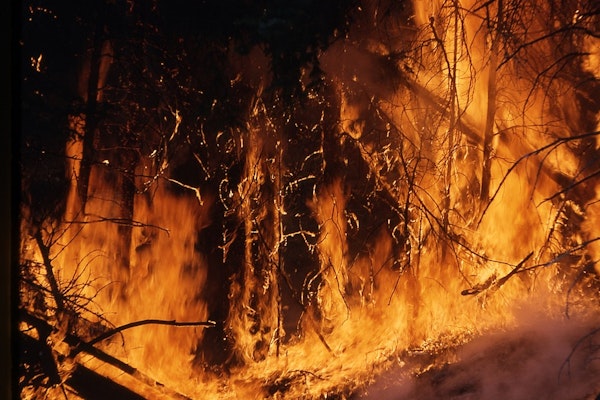
Authorities in California have charged four individuals in a $100 million workers’ compensation fraud scheme involving illegal referrals, fraudulent billing, and medical providers, following a three-year investigation.
October 21
Fraud
Legislation & Regulation
Litigation
Workers' Compensation
California

California introduces its first community-based flood program in Isleton, offering payouts to residents in flood zones when water levels hit specific thresholds, enhancing climate resilience.
October 21
Catastrophe
Legislation & Regulation
Property
Risk Management
California

As AI’s influence in advertising grows, both large and small businesses face new liability risks, especially in relation to Commercial General Liability policies. Insurers must prepare for emerging challenges, including chatbot misuse and privacy breaches.
October 17
Legislation & Regulation
Liability
Risk Management
Technology
California

A recent study highlights how removing federal subsidies from climate-vulnerable areas can reduce development, increase flood resilience, and generate savings, while emphasizing the challenges of balancing housing demand with disaster risk.
October 14
Catastrophe
Insurance Industry
Legislation & Regulation
Risk Management
California
New York
Oklahoma

A former insurance agent from Mission Viejo has been convicted on 90 counts of insurance fraud, theft, and elder abuse after stealing nearly $200,000 in premium payments and leaving 32 clients without coverage.
October 11
Fraud
Insurance Industry
Litigation
Property
California

The California Supreme Court ruled that public employers are not subject to civil penalties under the Private Attorneys General Act (PAGA) and are exempt from certain wage and break laws unless explicitly stated.
October 11
Legislation & Regulation
Litigation
Risk Management
Workers' Compensation
California

Fred Durst and Limp Bizkit have filed a lawsuit against Universal Music, seeking $200 million in unpaid royalties and the return of their copyrights, alleging the label systematically withheld payments owed to the band.
October 9
Insurance Industry
Liability
Litigation
Technology
California

Carpe Data uses AI and analytics to enhance fraud detection in insurance claims, reducing loss expenses, improving operational efficiency, and speeding up claims resolution.
October 4
Fraud
Insurance Industry
Technology
Workers' Compensation
California

Tech giants like Google and Tesla are exploring California’s homeowners insurance market, leveraging AI and big data to offer innovative, risk-adjusted policies that could reshape the industry and challenge traditional insurers like State Farm.
October 4
Insurance Industry
Property
Risk Management
Technology
California

Artificial intelligence is set to revolutionize workers’ compensation by enhancing decision-making, streamlining claims processes, and predicting outcomes. However, challenges like data quality, transparency, and standardization must be addressed for successful integration.
October 4
Litigation
Risk Management
Technology
Workers' Compensation
California

The rapid growth of solar energy is driving an increase in construction-defect claims, as industry experts highlight risks such as fire, environmental concerns, and insurance coverage issues.
October 4
Insurance Industry
Legislation & Regulation
Property
Risk Management
Arizona
California
Colorado
Florida
Texas

Understand the most frequent and costly insurance claims in the restaurant industry, from equipment breakdown to employee injury, and how claims adjusters can help mitigate risks.
September 30
Liability
Property
Risk Management
Workers' Compensation
California
Florida
Michigan
Mississippi
New Jersey

California has faced a severe wildfire season fueled by heat and dried-out vegetation, even without the seasonal winds that typically escalate fire risks. Experts warn that conditions could worsen as fall progresses.
September 24
Catastrophe
Legislation & Regulation
Property
Risk Management
California

A firefighter in Northern California has been arrested for allegedly starting five brush fires while off duty, raising concerns about internal misconduct within fire agencies.
September 23
Catastrophe
Legislation & Regulation
Litigation
Property
California

The impact of climate change is becoming more visible worldwide, with intensifying wildfires, severe droughts, and devastating floods affecting regions from Brazil to Southeast Asia.
September 19
Catastrophe
Litigation
Property
Risk Management
California
North Carolina
Recent Provider Listings
Serving Florida Statewide
Florida
Accident Investigations
Insurance Fraud Investigations
Surveillance




